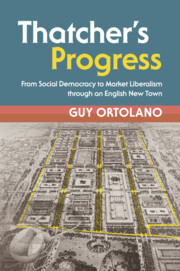7 - Conclusion
Published online by Cambridge University Press: 08 June 2019
Summary
The conclusion underscores the many ways that new town planning illustrated a dynamic social democracy. Yet these responses to the 1970s yielded unintended consequences, as strategic accommodations of individualism, markets, and private finance became ends unto themselves. If market liberalism initially figured as but one response to emergent priorities and constraints after 1973, Thatcherism represented the subordination of those more various possibilities to a market logic. By the 1990s, in order to distance itself from left as well as right, New Labour endorsed a reading of postwar history as having been dominated by the state and then the market on either side of 1979. This erasure of social democracy’s more supple history requires its recovery – the recovery of ambitions and innovations that, however imperfectly enacted, remain visible all around us in new towns housing millions. Today, as cities around the world face dramatic housing crises, the history of new town planning attests to precedents and procedures that states recently deployed in their efforts to confront these recurrent urban challenges.
Keywords
- Type
- Chapter
- Information
- Thatcher's ProgressFrom Social Democracy to Market Liberalism through an English New Town, pp. 253 - 263Publisher: Cambridge University PressPrint publication year: 2019

